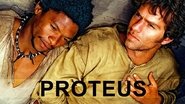Diagonaldi
Very well executed
SincereFinest
disgusting, overrated, pointless
Doomtomylo
a film so unique, intoxicating and bizarre that it not only demands another viewing, but is also forgivable as a satirical comedy where the jokes eventually take the back seat.
Lucia Ayala
It's simply great fun, a winsome film and an occasionally over-the-top luxury fantasy that never flags.
aarcher64-1
A lot has been said about the anachronisms but only to the point that "times are still tough for gay people." My impression is that they have more meaning then that, like were those court reporters portraying the actual reporters present when Mandela was sentenced using prison typewriters? Was that the Land Rover he rode in? Was the cousin dressed as Jackie O. saying something about Kennedy's involvement in S. Africa? There have also been complaints about the limited development of the Scot botanist's role. I believe they didn't spend more time on that because it wasn't necessary and maybe there wasn't more facts from the transcripts available.
harry-76
This "art house" film, based on factual documents, depicts real events which are informative and provide a historical context for some of today's social attitudes.Although the recorded events took place in the mid-18th century, the director has peopled his set with deliberate contemporary anachronisms. This is apparently to tie together time periods, showing significant similarities.The film itself seems to have a divided audience, from those who love it to those whose reactions are the opposite. While the events covered are pretty grim and unpleasant, the production is well shot and the quality of the actors is uniformly strong. In my opinion, though, here's a film that will probably have a limited general, together with an appreciative special, audience. It is commendable that the South African government has opened its political policy for more inclusiveness in artistic subject matter. Well produced by a Canadian company.
mpb2009
Post-apartheid cinema is characterized by the emergence of new voices and a diversification of themes. For the first time South African audiences are exposed to certain marginalized communities, including gay and lesbian subcultures. An important milestone in South African feature film-making is Jack Lewis's Proteus, the beginning of a visible gay/lesbian cinema in South Africa. Under apartheid gay and lesbian voices in film and television were also silenced. In a seven year study of the depiction of gays and lesbians in African, Asian and Latin American cinema I have noted that homosexual experience is unique in South Africa, precisely because of our history of racial division and subsequent resistance. Based on a true story, PROTEUS is a period film that raises issues still of enormous relevance today. Historian and filmmaker Jack Lewis was fascinated by a court record in the Cape Archives, dated 18 August 1735, giving judgment in the case of two Robben Island prisoners. Dutch sailor Rijkhaart Jacobsz and Khoe convict Class Blank received extreme sentences for what the court called 'the abominable and unnatural crime of Sodomy'. It is an extremely moving experience and forms part of a very small number of South African productions on homosexuality. Despite a new constitution which prohibits discrimination against gays and lesbians, our images of gay men and women are limited and still on the margin of the film industry. One ends up with less than fifteen short films, a few documentaries, less than five features with openly gay and lesbian characters and virtually no television programmes during the past hundred years of South African cinema!
Havan_IronOak
This film, based on a true story tells of Rijkhaart Jacobsz and Claas Blank two men who were imprisoned and met on Robben Island 1718 and 1735. These two men met and fell in love on the island that would, many years later become the site of Nelson Mandela's life sentence.Rijkhaart Jacobsz was a Dutch sailor that had been sentenced there for homosexuality. It is there that he met Claas Blank, a aboriginal (Hottentot) who had run afoul of the law and was acquitted of any crime because there was insufficient evidence of his committing any crime but was sentenced to 10 years hard labor because he had been accused.The story also tells us of Virgil Niven a Dutch plant biologist who had come to South Africa to classify the plant life there but was afraid to return home after the Dutch in Amsterdam began a pogrom of homosexuals.
While this story is NOT well known in South Africa today one hopes that with this film it will become more widely known. South Africa has one of the most enlightened constitutions in the world with an equal protection clause for sexual preference in their Bill of Rights.The film uses a creative approach to anachronism to help tell its story, mixing modern day elements with what is essentially a historical costume drama. Many of these elements were reported by the director to have special historical significance to those that know the full history of Robben Island, for the rest of us it just makes for an interesting device that adds a bit of spice to what some may think is a too-drawn out story.

